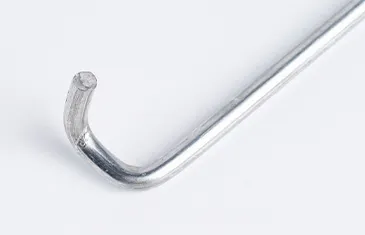-
 Phone:
Phone: -
 Email:
Email:

Durable Steel Rebar Tie Wire for Construction Projects and Reinforcement Needs
Understanding Steel Rebar Tie Wire Importance and Applications
Steel rebar tie wire plays a crucial role in the construction industry by providing essential support and stability to reinforced concrete structures. When it comes to constructing buildings, bridges, and other infrastructure, ensuring structural integrity is paramount. This article delves into the purpose, types, and applications of steel rebar tie wire, highlighting its significance in the construction process.
What is Steel Rebar Tie Wire?
Steel rebar tie wire is a thin, flexible wire made from high-quality steel, predominantly used in the reinforcement of concrete. Its primary function is to bind steel rebar together, ensuring they remain in the correct position during the pouring of concrete. By holding the rebar in place, the tie wire helps maintain the structural shape and integrity of the reinforced concrete, preventing issues such as shifting or displacement.
Types of Tie Wire
There are several types of steel rebar tie wire available, each designed to meet specific requirements in construction
1. Annealed Tie Wire This type of wire is soft and easy to bend, making it ideal for tying rebar. It is often used in construction projects due to its flexibility, which allows for quick and efficient application.
2. Galvanized Tie Wire Coated with zinc, galvanized tie wire is resistant to corrosion, making it suitable for outdoor projects or areas susceptible to moisture. This type of wire ensures longevity and durability in demanding environments.
3. Black Steel Tie Wire This is uncoated wire that is strong and commonly used in various construction projects. It is typically more economical than galvanized options, but it may be more susceptible to rust and corrosion.
steel rebar tie wire

Applications in Construction
The application of steel rebar tie wire is widespread in the construction industry. Here are some common uses
- Reinforcing Concrete Structures Tie wire is primarily used to secure and stabilize rebar in concrete structures like slabs, beams, and columns. Properly tied rebar ensures that concrete can effectively carry loads and withstand various forces, including tension and compression.
- Formwork Support When constructing large concrete elements, formwork is often used to shape the concrete. Tie wire can help secure rebar within the formwork, ensuring that it remains in the correct position as the concrete is poured.
- Safety Reinforcement In areas where heavy loads are expected, such as highways or bridges, using steel rebar tied with tie wire enhances safety. The reinforced concrete can withstand greater forces, reducing the risk of structural failure.
- Retaining Walls Tie wire is also used in constructing retaining walls, where it secures the rebar framework that supports the wall’s weight and prevents soil from shifting.
Conclusion
In summary, steel rebar tie wire is an essential component in modern construction practices. Its ability to hold rebar in place during the curing process of concrete ensures the structural integrity and longevity of buildings and infrastructure. With various types available to suit different project needs, the importance of this seemingly simple wire cannot be overstated. Whether for residential buildings, commercial structures, or massive engineering feats, steel rebar tie wire is vital for ensuring safety and durability in construction.
-
Wire Mesh for Every Need: A Practical SolutionNewsJul.25,2025
-
Steel Fences: Durable, Secure, and Stylish OptionsNewsJul.25,2025
-
Roll Top Fencing: A Smart Solution for Safety and SecurityNewsJul.25,2025
-
Cattle Farm Fencing Solutions for Maximum SecurityNewsJul.25,2025
-
Affordable Iron Binding Wire SolutionsNewsJul.25,2025
-
Affordable Galvanized Wire SolutionsNewsJul.25,2025
-
Wire Hanger Recycling IdeasNewsJul.25,2025








